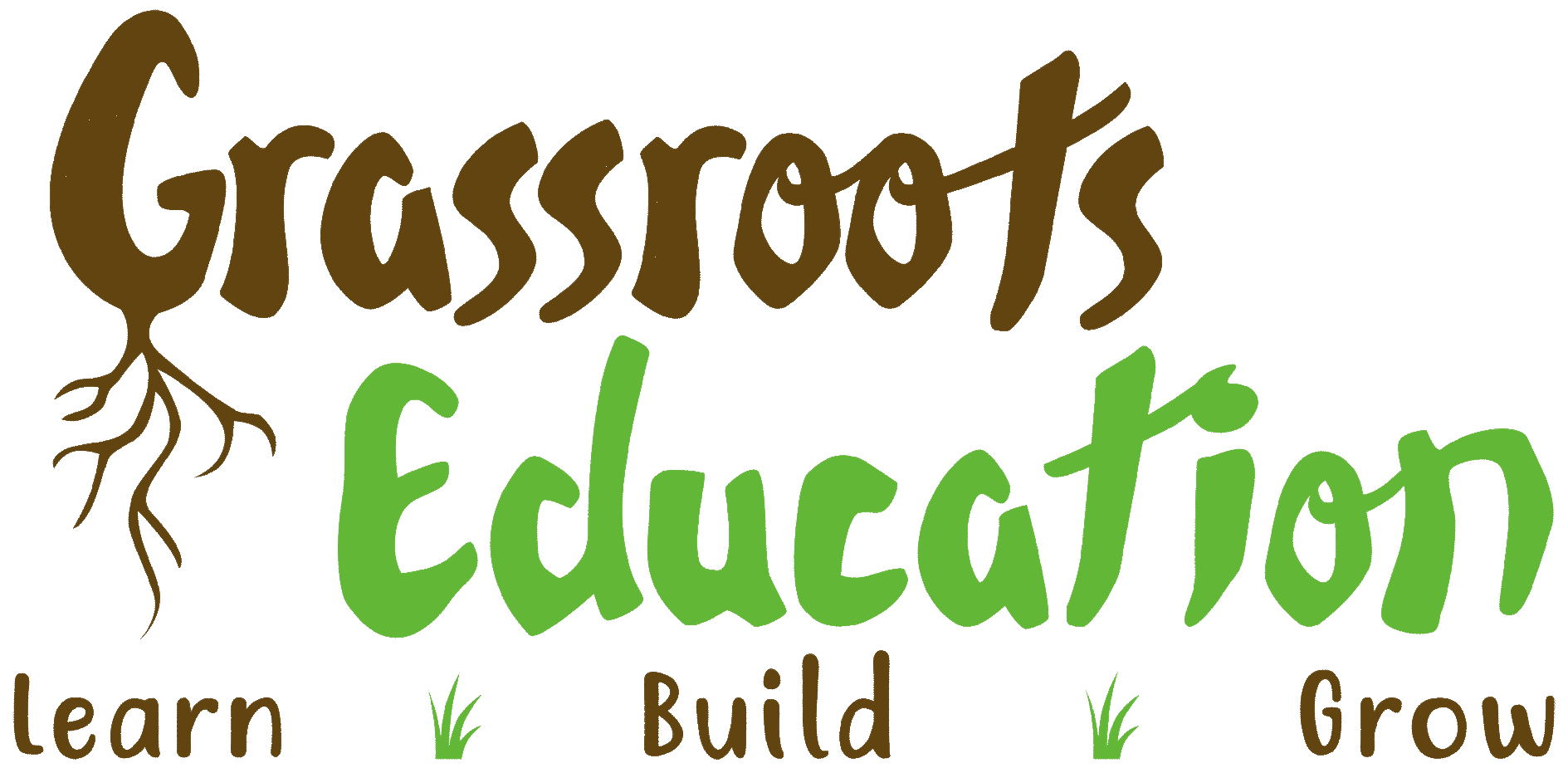
by Marcia Davis-Dawkins | Dec 18, 2018 | Education, Kids, Parents, Teachers
Family is Everything

By Dr. Marcia Davis-Dawkins
Holidays are centered around family. I have always been a person who loves and enjoys being with family. When I was growing up, one of my friends said that “I wasn’t a family person” simply because I didn’t grow up with my mother and father like most people do. I don’t think I ever got over that statement. In fact, a few years ago, I sought clarification from the friend only to be told that he was immature and never understood me. For the record, I grew up with my aunts, who were both teachers and might have steered me in the direction of being an educator. Most people don’t know or understand the reasons children don’t live with their parents and are quick to pass judgments. But does that mean that they are not living in a family or that they don’t desire a “traditional family” life? How do we define ‘family’? Most people define a ‘traditional family’ as a married mother and father along with biological children living in the same house. We might also say that was once upon a time – since there are so many new ways to define a family these days. However we define family, it should include being supportive, understanding – being there to help with homework, attend school events among other things.
Never Underestimate the Power of Family
Now that I am older I can say I was a tad bit embarrassed to admit that I was not part of a “traditional” family and even more embarrassed that it was a single parent family. It seemed almost like a crime or a sin to me! With age comes wisdom, however, and I have come to realize that my family may not have had it all together, but together we had it all. Despite missing the conventional cast of characters, my family was there for me through the best of times and the worst of times. Many things change during the course of your lifetime, such as friends, jobs, your morals, your style, but the one constant is family. They provide for your emotional and physical needs without you demanding it and stand by you. Their presence ensures that you will be loved for the rest of your life, no matter what.
 I often wondered how my students felt growing up in a single family home, especially since for me I had the experience of my friends growing up in the traditional married parents family. Because of that I always empathize with my students who would tell me secretly that that lived with their aunts, grandma or others who were not mother or father. I always felt the need to assure them that it was okay and that it was not the end of the world. It is also such a sensitive topic when the situation is that the parents are deceased and the lessons are centered around family discussions or activities, such as when we are reading Sarah, Plain and Tall by Patricia MacLachlan, where the mom in the story is deceased. The story’s theme explores loneliness, abandonment, and coping with change. Then there is that time when it’s Mother’s Day or Father’s Day and the activity is to make something for the parent, who unfortunately, is deceased. As
I often wondered how my students felt growing up in a single family home, especially since for me I had the experience of my friends growing up in the traditional married parents family. Because of that I always empathize with my students who would tell me secretly that that lived with their aunts, grandma or others who were not mother or father. I always felt the need to assure them that it was okay and that it was not the end of the world. It is also such a sensitive topic when the situation is that the parents are deceased and the lessons are centered around family discussions or activities, such as when we are reading Sarah, Plain and Tall by Patricia MacLachlan, where the mom in the story is deceased. The story’s theme explores loneliness, abandonment, and coping with change. Then there is that time when it’s Mother’s Day or Father’s Day and the activity is to make something for the parent, who unfortunately, is deceased. As  educators we have to be mindful of these situations and know our students and know their backgrounds and ensure that we plan our lessons carefully. Family is everything, but we cannot allow our students to feel left out. We should make them feel like our classroom is a family setting and help them to cope through the difficult times that they may encounter. We cannot replace blood relatives, but can be that “family” that is a valuable resource for helping them through onerous times. Knowing this support system is available to them offers the security they may be lacking at home. Never underestimate the power of “family,” the most important gift in our lives.
educators we have to be mindful of these situations and know our students and know their backgrounds and ensure that we plan our lessons carefully. Family is everything, but we cannot allow our students to feel left out. We should make them feel like our classroom is a family setting and help them to cope through the difficult times that they may encounter. We cannot replace blood relatives, but can be that “family” that is a valuable resource for helping them through onerous times. Knowing this support system is available to them offers the security they may be lacking at home. Never underestimate the power of “family,” the most important gift in our lives.
True Friends Never Part

by Marcia Davis-Dawkins | Dec 3, 2018 | Education, Kids, Parents, Teachers
Where Have All the Flowers Gone?

By Marcia Davis-Dawkins
In a world where we can be anything that we want, I strongly believe that we should strive to be KIND! Kindness seems to be a word that is disappearing from our vocabulary and dare I say the world. It’s so easy to see others in sadness and prejudge them and assume they “deserve” the sadness.  Sometimes things happen in our lives and the first thing we say is that we will get back at that person who harmed or hurt us. I recently parked and dropped my daughter off so she could take care of some business. We had planned to go somewhere else after so I would simply wait in the car. Since I know how crazy life can get I usually park far away so I won’t get hit by another car that’s parked close (or is trying to park next to me). On this day I watched this woman park so close, that as she opened her door, the wind blew the door and it swung open and hit mine! In my mind I knew it was bad because I heard and felt the impact. Well, the woman simply re-buckled her seat belt, pulled in her door and was ready to move off with no apologies. I rolled down my window and beckoned to her then mouthed, “You could have said sorry!” I thought, “Wow, no one cares, Marcia, just suck it up and live with it.” But as I took a breath and composed myself, my thoughts went further, “At least I am okay and she might not be!” She could have been dying inside but I also wondered, why kind people have become a rare commodity in life. Did I intimidate this woman? I could have called the cop and she saw that I was in the car. Or was I invisible?
Sometimes things happen in our lives and the first thing we say is that we will get back at that person who harmed or hurt us. I recently parked and dropped my daughter off so she could take care of some business. We had planned to go somewhere else after so I would simply wait in the car. Since I know how crazy life can get I usually park far away so I won’t get hit by another car that’s parked close (or is trying to park next to me). On this day I watched this woman park so close, that as she opened her door, the wind blew the door and it swung open and hit mine! In my mind I knew it was bad because I heard and felt the impact. Well, the woman simply re-buckled her seat belt, pulled in her door and was ready to move off with no apologies. I rolled down my window and beckoned to her then mouthed, “You could have said sorry!” I thought, “Wow, no one cares, Marcia, just suck it up and live with it.” But as I took a breath and composed myself, my thoughts went further, “At least I am okay and she might not be!” She could have been dying inside but I also wondered, why kind people have become a rare commodity in life. Did I intimidate this woman? I could have called the cop and she saw that I was in the car. Or was I invisible?
How can we (educators) ….
This was actually day two of my demise. The day before I couldn’t get access to a building because my ID “was miscoded” as per a security personnel hours prior. After several attempts, I saw another security officer who watched me fail to gain entry to the building. I got out of my car and moved towards his car to get further instructions and he drove off! My anger brewed, but I held my composure because I didn’t want to seem unprofessional. I wanted to make it right as I was not sure who was watching and how my reaction would impact that person who was witnessing the event. I really am trying to make a more positive impact. Interestingly, I thought of two Bible verses I learned a child– first, “A soft answer turneth away wrath, but grievous words stir up anger.” Proverbs 15:1 and the second, from Philippians 4:5 “Let your gentleness be evident to all.” I also thought that even though the education system does not build its principles on the Bible, they are worth pondering. I could not help but wonder how can we teach our students to be kind and be conscious of what they say to others? How can we (educators) make a difference in students’ lives or even our colleagues’? How can we help to make them into “flowers?” There are so many moments of hate, war, meanness, bullying and such. We must remind our students and ourselves that while it is easy to be mean and hateful, it takes true strength to be kind, especially to unkind people, who, in all likelihood, are the ones who need it most.  When you have a bad day, attempt to treat the world better than it treated you. Greatness is not in what we have, but what we give…give kindness and watch the garden flourish.
When you have a bad day, attempt to treat the world better than it treated you. Greatness is not in what we have, but what we give…give kindness and watch the garden flourish.
The Teacher Who Makes a Difference!!!!!

by Marcia Davis-Dawkins | Oct 29, 2018 | Education, Parents, Teachers
Is the Teacher an Expert?
 By Dr. Marcia Davis-Dawkins
By Dr. Marcia Davis-Dawkins
Who is an expert?
An expert is a person who has a comprehensive and authoritative knowledge of a skill in a particular area. Can it be said then, that a teacher is an expert in education? Do we have a comprehensive and authoritative knowledge in all the areas we teach? I dare say that we have knowledge of our subject area, but each day we are learning more as we teach, hence the reason we have ongoing professional development sessions throughout our careers. Growth is essential and being an “expert” is a lifelong journey.
From early on, budding educators learn that before they can impart content knowledge, classroom management must be conquered. A teacher cannot teach a classroom if he/she cannot manage it, and that is not something that is taught in college. So , what does one do? Plan obsessively. Lesson plans should have contingencies, and often need revision. After completing a plan, one should ask ,”Okay, now what could go wrong and how should it be handled if it does?”
Another management key is scoping out the class before it even enters the classroom. As soon as one receives his/her class list, scathe it. Converse with previous teachers and ask questions. While different teachers have varying views of students and diverse relationships, some basic information can be garnered and utilized. Who should/shouldn’t sit together? What incentives or discouragements worked well? Whose parents are cooperative and what strengths or weaknesses were prevalent? This type of foreknowledge can aid in reaching that goal of expertise.
As educators we might be skilled, knowledgeable, and learned, but the process to being an expert is ongoing. Expertise has to do with personal growth as well. We should never be satisfied with mediocre – we should strive to be better. Our growth and learning should continue. We should be aware of where our strong points are and keep improving those points.
Are we ever done learning, so we can be the experts? Are we at our full capacity as experts? Can we improve anything in our personal lives or career? If we stop learning or refrain from finding ways to improve our professionalism, then we will become stagnant. Hopefully, we can all say that we have grown professionally since we first left college, so much so that we can teach better than when we did when we first started teaching.  Yes, we have grown professionally, but I don’t think we are experts. It is necessary to keep on earning experience so we can get better at what we do. Part of gaining experience is by investing in knowledge that will provide interest. We can also strive to be an expert so we can be at the top of our game, but we are simply not at the top – we can get better in all we do. The process to get to the expert level can take a while and usually doesn’t take one day, one year, or five years. Just like fine wine, we can age to perfection as we study to enhance our profession. There is absolutely no need to think that in the process we won’t make mistakes, but we can always hit the restart button, especially when we have new students. Yes, we may fall in the process, but we can get up since mastery is possible. The aim is to try to get better at what we do – soar to perfection!
Yes, we have grown professionally, but I don’t think we are experts. It is necessary to keep on earning experience so we can get better at what we do. Part of gaining experience is by investing in knowledge that will provide interest. We can also strive to be an expert so we can be at the top of our game, but we are simply not at the top – we can get better in all we do. The process to get to the expert level can take a while and usually doesn’t take one day, one year, or five years. Just like fine wine, we can age to perfection as we study to enhance our profession. There is absolutely no need to think that in the process we won’t make mistakes, but we can always hit the restart button, especially when we have new students. Yes, we may fall in the process, but we can get up since mastery is possible. The aim is to try to get better at what we do – soar to perfection!
The Teacher Who Makes a Difference!!!!!

by Marcia Davis-Dawkins | Oct 15, 2018 | Education, Kids, Parents, Teachers
Peace in the Midst of the Storm
 By Dr. Marcia Davis-Dawkins
By Dr. Marcia Davis-Dawkins
As educators have you ever entered a classroom where there is total chaos? I have on several occasions and at times (if I want to be totally honest), I do feel like I want to run, hide and go away from the situation. And I do run if it’s not my room but then if I am the leader of that room, I have to take charge and try to fix the chaos. Calm for me brings a sense of peace and I act and respond differently much like butterflies flying in the atmosphere. Unlike calm, chaos makes my head feel as if it’s going to explode. The classroom can be very chaotic at times and as the educator, I have to have classroom management so that there is a sense of calm in the room at all times. This is not an easy task especially when there are 25 bodies with 25 different personalities in one room. If as the teacher who wears several different hats, I have to know these students and ensure that I am meeting ALL their learning needs so as to prevent chaos for them and for me.
For the students
who enter the classroom with a chaotic mind because their homes are chaotic. They enter the classroom already rebellious and stressed because the tone was set in their homes as they leave or the night before. How do we help them and how do we know that there is chaos/confusion? We might be and could be their source of peace and calm so we have to be able to read them and set an environment of calm and peace as they enter the classroom. Who knows we might be their escape from the unfriendly (warlike) home they left. Our students are depending on us to provide that peace and calm. So we should then be prepared for them. Here are few tips that are recommended to provide that sense of peace for our students.
- Rely on schedules, routines, and procedures it helps to promote order hence peace.
- Maintain a clean, organized classroom that helps and creates peace and calm
- Be the same teacher yesterday, today, and tomorrow so they learn how to trust and want to be around you the teacher. If a teacher is constantly absent and students see different teachers or substitute then this could cause chaos.
- Be kind so you are the role model
- Protect your students from misbehavior so they understand that you care
- Don’t take misbehavior personally as some students are unaware of what good behavior looks like
- Maintain a peaceful learning environment so they want to learn and want to be at school in the special environment.
- A Safe Haven so they feel comfortable and special
- Address students by name so they feel wanted and appreciated
- Use “please” and “thank you” they understand how being polite look and feel like
- Listen to our students and teach them how to listen to others
- Don’t allow bullying/teasing/put downs
 I am sure that as educators we feel just as chaotic at times because we are humans but we can and should find time to meditate and reflect, exercise and especially for me do a lot of self-talk and positive affirmation. The world around us can be so unkind so we should definitely find some “me” time so we have solace in our space. This will definitely help us to be prepared for our students.
I am sure that as educators we feel just as chaotic at times because we are humans but we can and should find time to meditate and reflect, exercise and especially for me do a lot of self-talk and positive affirmation. The world around us can be so unkind so we should definitely find some “me” time so we have solace in our space. This will definitely help us to be prepared for our students.
Simple things like routines help your students know what to expect, which in turn helps them to feel calm, competent, and ready to learn. Even brain breaks can help to break down the monotony of always doing Math or Language Arts. Fun activities so they can as it implies give the brain a break for dreary tasks. We would surprise how unassuming activities can help to move toward building a community of peacemakers and calm in the classroom. Let’s help to create the calm in the midst of our students’ storm!
Ride Out the Storm

by Marcia Davis-Dawkins | Oct 1, 2018 | Education, Kids, Parents, Teachers, Teens

By Dr. Marcia Davis-Dawkins
In his First Inaugural Address, Franklin D. Roosevelt (FDR) said; “ The only thing we have to fear is fear itself.” I found myself thinking about that quote recently when I was enlisted to present professional development to a group of educators like myself. What I inferred from FDR was that if we fear things, it will simply make matters worse. In effect, it can damage our self-confidence and wane our ability to move forward. The fears we don’t face become our limits. Understanding that gave me the courage to work through my trepidation with favorable results.
As humans we fear many things,
so much so that there are several characteristics or forms of fear known as phobias. You name it and there is a phobia for it. Why do we have fear? In my case, was I afraid that my audience would berate me, or that I would falter in the delivery of the material? Why do you fear and what do you fear? The high school I attended in Jamaica had several huge lignum vitae trees on the school property. These trees provided shade for the girls, as well as a place to sit when we wanted to eat lunch outdoors. (Seats with tables were made around the trees). As wonderful as the trees were, during the school year they were filled with caterpillars – they were everywhere and infested our comfortable haven while we were trying to enjoy lunch or waited to switch classes. The fear was the caterpillars!!! We knew that they would eventually be beautiful butterflies, and our fear was irrational, but that creepy, crawly stage horrified us.
As educators we fear getting a bad evaluation, having a class we are unable to manage, missing deadlines, performing poorly on a test, among many other things. But I do want to point out that there are times when fear is an asset and becomes a strength — simply because we didn’t realize that we were capable of doing certain things.
Since we are all humans, we know that our students will have fears as well – fear of the teacher, fear of learning, fear of being bullied, fear of a new environment and even fear of the unknown. It is our job and one of the many hats that we wear to help them conquer their angst and help them to believe in themselves. Some of those same students might even have their teachers to thank because the teachers helped them to overcome their fears. I know that because I am one of those teachers whose former teacher helped me to conquer my fear of being a teacher! Let us encourage our students, fellow educators and ourselves since encouragement brings oxygen or nourishment to the soul. Remember that FEAR can translate to Forget Everything And Run or Face Everything And Rise. The choice is yours.
Rise Above



 I often wondered how my students felt growing up in a single family home, especially since for me I had the experience of my friends growing up in the traditional married parents family. Because of that I always empathize with my students who would tell me secretly that that lived with their aunts, grandma or others who were not mother or father. I always felt the need to assure them that it was okay and that it was not the end of the world. It is also such a sensitive topic when the situation is that the parents are deceased and the lessons are centered around family discussions or activities, such as when we are reading Sarah, Plain and Tall by Patricia MacLachlan, where the mom in the story is deceased. The story’s theme explores loneliness, abandonment, and coping with change. Then there is that time when it’s Mother’s Day or Father’s Day and the activity is to make something for the parent, who unfortunately, is deceased. As
I often wondered how my students felt growing up in a single family home, especially since for me I had the experience of my friends growing up in the traditional married parents family. Because of that I always empathize with my students who would tell me secretly that that lived with their aunts, grandma or others who were not mother or father. I always felt the need to assure them that it was okay and that it was not the end of the world. It is also such a sensitive topic when the situation is that the parents are deceased and the lessons are centered around family discussions or activities, such as when we are reading Sarah, Plain and Tall by Patricia MacLachlan, where the mom in the story is deceased. The story’s theme explores loneliness, abandonment, and coping with change. Then there is that time when it’s Mother’s Day or Father’s Day and the activity is to make something for the parent, who unfortunately, is deceased. As  educators we have to be mindful of these situations and know our students and know their backgrounds and ensure that we plan our lessons carefully. Family is everything, but we cannot allow our students to feel left out. We should make them feel like our classroom is a family setting and help them to cope through the difficult times that they may encounter. We cannot replace blood relatives, but can be that “family” that is a valuable resource for helping them through onerous times. Knowing this support system is available to them offers the security they may be lacking at home. Never underestimate the power of “family,” the most important gift in our lives.
educators we have to be mindful of these situations and know our students and know their backgrounds and ensure that we plan our lessons carefully. Family is everything, but we cannot allow our students to feel left out. We should make them feel like our classroom is a family setting and help them to cope through the difficult times that they may encounter. We cannot replace blood relatives, but can be that “family” that is a valuable resource for helping them through onerous times. Knowing this support system is available to them offers the security they may be lacking at home. Never underestimate the power of “family,” the most important gift in our lives.

 Sometimes things happen in our lives and the first thing we say is that we will get back at that person who harmed or hurt us. I recently parked and dropped my daughter off so she could take care of some business. We had planned to go somewhere else after so I would simply wait in the car. Since I know how crazy life can get I usually park far away so I won’t get hit by another car that’s parked close (or is trying to park next to me). On this day I watched this woman park so close, that as she opened her door, the wind blew the door and it swung open and hit mine! In my mind I knew it was bad because I heard and felt the impact. Well, the woman simply re-buckled her seat belt, pulled in her door and was ready to move off with no apologies. I rolled down my window and beckoned to her then mouthed, “You could have said sorry!” I thought, “Wow, no one cares, Marcia, just suck it up and live with it.” But as I took a breath and composed myself, my thoughts went further, “At least I am okay and she might not be!” She could have been dying inside but I also wondered, why kind people have become a rare commodity in life. Did I intimidate this woman? I could have called the cop and she saw that I was in the car. Or was I invisible?
Sometimes things happen in our lives and the first thing we say is that we will get back at that person who harmed or hurt us. I recently parked and dropped my daughter off so she could take care of some business. We had planned to go somewhere else after so I would simply wait in the car. Since I know how crazy life can get I usually park far away so I won’t get hit by another car that’s parked close (or is trying to park next to me). On this day I watched this woman park so close, that as she opened her door, the wind blew the door and it swung open and hit mine! In my mind I knew it was bad because I heard and felt the impact. Well, the woman simply re-buckled her seat belt, pulled in her door and was ready to move off with no apologies. I rolled down my window and beckoned to her then mouthed, “You could have said sorry!” I thought, “Wow, no one cares, Marcia, just suck it up and live with it.” But as I took a breath and composed myself, my thoughts went further, “At least I am okay and she might not be!” She could have been dying inside but I also wondered, why kind people have become a rare commodity in life. Did I intimidate this woman? I could have called the cop and she saw that I was in the car. Or was I invisible? When you have a bad day, attempt to treat the world better than it treated you. Greatness is not in what we have, but what we give…give kindness and watch the garden flourish.
When you have a bad day, attempt to treat the world better than it treated you. Greatness is not in what we have, but what we give…give kindness and watch the garden flourish.

 Yes, we have grown professionally, but I don’t think we are experts. It is necessary to keep on earning experience so we can get better at what we do. Part of gaining experience is by investing in knowledge that will provide interest. We can also strive to be an expert so we can be at the top of our game, but we are simply not at the top – we can get better in all we do. The process to get to the
Yes, we have grown professionally, but I don’t think we are experts. It is necessary to keep on earning experience so we can get better at what we do. Part of gaining experience is by investing in knowledge that will provide interest. We can also strive to be an expert so we can be at the top of our game, but we are simply not at the top – we can get better in all we do. The process to get to the 



